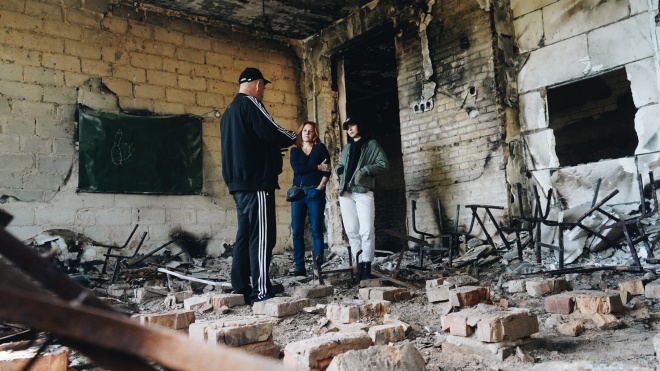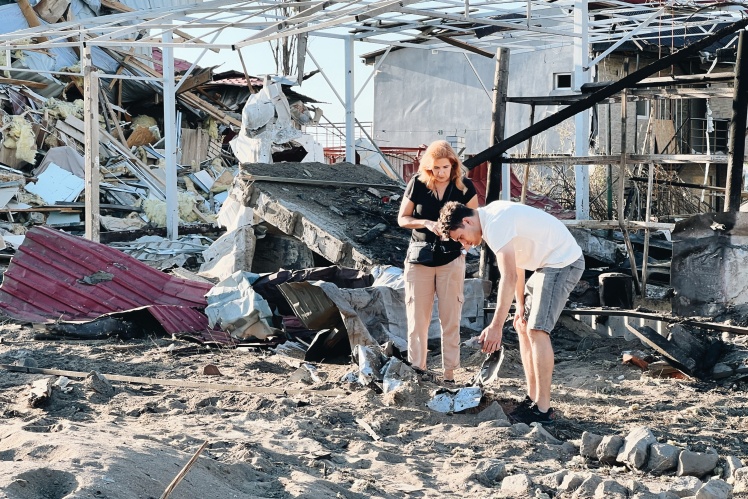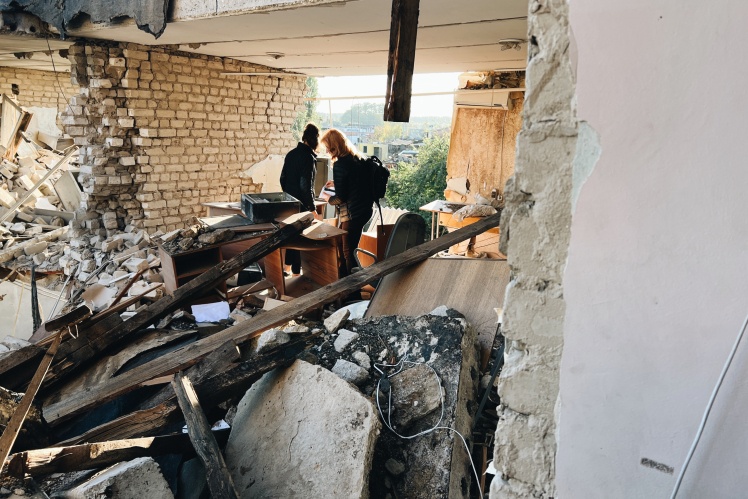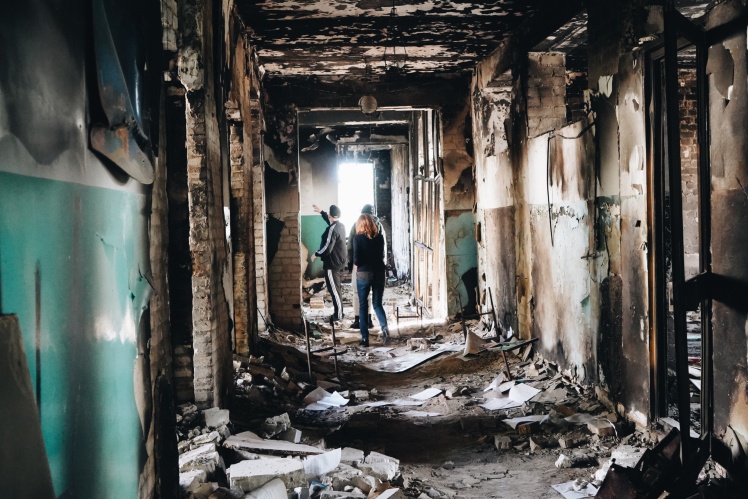What kind of cases were submitted to Germany
The first case is rocket fire in the Odesa region in the summer of 2022. At that time, 22 civilians, including one child, were killed in the attack, and another 40 people were seriously injured. Russian Tu-22 bombers fired X-22 supersonic missiles, which partially destroyed several civilian buildings. The Docket did not detect any military facilities in the vicinity. There are evidence that prove that this shelling is part of a wider practice of the Russians. Since the start of the full-scale invasion, Russian forces have launched at least 31 strikes with X-22 missiles. The choice of such a weapon, The Docket believes, may indicate that the attacks are indiscriminate and therefore a violation of the rules of war, an international crime. The Docket in this case represents the interests of eleven families of victims. The project team also proved that the Russians use Kh-22 missiles and choose targets for them only after approval at the highest level — in the Main Directorate of the General Staff of the Russian Armed Forces and other intelligence services.
The second case is the torture and execution of four men in the Kharkiv region. The Docket represents the families of three of the four victims. The team filed this complaint together with Ukrainian human rights defenders from Truth Hounds. Bellingcat and the Global Legal Action Network helped with the analysis of open sources. Part of the cities and villages of the Kharkiv region were under occupation from March to August 2022. The village where the four men were detained was under the control of the so-called "Luhansk Peopleʼs Republic". The four men were detained in March 2022, and their families did not have any information about them for several months. Later, a local resident found the bodies of three men in a forest near the village. The body of the fourth man was found on the side of the road and buried in a mass grave near Izyum. Traces on their bodies indicate that they were executed. In this case, The Docket demands an investigation of thirteen LPR commanders and Russian units.
The third case is executions, torture, sexual violence, looting and other crimes during the occupation of the Kyiv region in March 2022. The focus of this case is the territorial community in the northeast of Kyiv. According to the local authorities, during the occupation the Russians killed killed 177 people in this community, and also destroyed 266 houses, of which at least 70 were burned on purpose. The Docket, for its part, collected evidence of 28 murders, five cases of rape and torture of eight people. The lawyers of the team represent the interests of the man who was tortured by the Russian military, as well as the family of the man who was killed. The Docket is asking for an investigation into five Russian commanders.
Work in the Odesa region at the site of a Russian missile impact. The team is studying the documents that Russian soldiers left behind in the Kharkiv region. The Docket team visits one of the sites where Russian soldiers held civilians.
The Docket / «Бабель»
Why were these crimes chosen?
These are the first three cases, then the team will prepare new ones. For now, it is important to show typical and common crimes of Russians in Ukraine. In addition, the team specially chose different regions of Ukraine.
"We have chosen cases that sufficiently paint a picture of what happened in Ukraine starting from February 2022," explains Anna Neistat.
Why Germany?
There is a specific reason for that — all these cases are linked to Germany. That is, family members of the dead or victims are currently in this country.
In addition, it is one of the few countries with absolute universal jurisdiction. That is, there are no requirements for the suspect to be on the territory of Germany, or for the victim to be a citizen or resident of this country.
"In this sense, universal jurisdiction is the only way to achieve justice," says Neistat.
There is one more nuance — there is no full team responsibility in Ukrainian legislation. That is, a Russian commander can be convicted of a war crime only in case when he gave a direct order. In Germany, the commander will bear responsibility even if he knew about the crimes committed by his subordinates, but did nothing to stop them and punish the guilty. The same norm exists in the International Criminal Court, but only the highest military leadership and top officials can be tried there.
Germany has the resources and experience to deal with such cases, there is a special war crimes prosecutorʼs office. Such cases often reach to court. For example, in January 2022, the court of the German city of Koblenz convicted Anvar Raslan, a former officer of the special services of Syrian President Bashar al-Assad, who came to Germany as a refugee. He was found guilty of crimes against humanity: mass murders, torture of Syrian oppositionists and their families. Raslan received a life sentence. It was the first ever trial on the crimes of Bashar al-Assadʼs regime.
Anwar Raslan is a former officer of the special services of Syrian President Bashar al-Assad. In a German court. For his crimes he received a life sentence.
The Docket / «Бабель»
In addition, Germany was one of the first to open a structural investigation into the crimes of the Russian military in Ukraine. That is, they are already collecting evidence that can be combined with The Docket.
What will happen next
First, the German prosecutorʼs office will conduct its investigation based on The Docket, interviewing the applicants represented by the Clooney Foundation. They must agree to participate in the case. The prosecutorʼs office will also interview witnesses and experts provided by the Foundationʼs lawyers.
The prosecutorʼs office can find some additional evidence on its own. When there is enough evidence, investigators can obtain arrest warrants for the Russian military and their commanders. It is clear that none of these people are currently in Germany, so these warrants will become international and primarily European through the Europol system, which also has connections with non-European countries, such as Turkey or the UAE. This will enable the system of potential extraditions to be launched.
Russian military still move freely around the world. Daniil Martynov, a former aide to the head of Chechnya, Ramzan Kadyrov, who, according to the Security Service of Ukraine (SBU), is involved in war crimes in the Kyiv region, came to Turkey in February 2023 without hindrance, where he led a group of the Russian Ministry of Emergency Situations that helped eliminate the consequences of the earthquake. Back in August 2022, the SBU declared Martynov a suspect, at the same time he was declared wanted. But, according to Babel, it was not possible to declare him an international wanted person, because Interpol refused to consider such requests from Ukraine, referring to its own rules.
When Germany and Europol join the case, the situation may change. That is, if war criminals go abroad, it will be Germany and not Ukraine that will demand their extradition based on international arrest warrants.
The Docket team at one of the crime scenes of the Russian military.
The Docket / «Бабель»
Translated from Ukrainian by Anton Semyzhenko.
We believe that the Russians guilty of crimes will be punished, and we will definitely write about it. Support Babel: 🔸 in hryvnia , 🔸 in cryptocurrency , 🔸 Patreon , 🔸 PayPal: [email protected].



